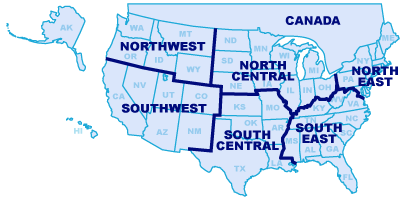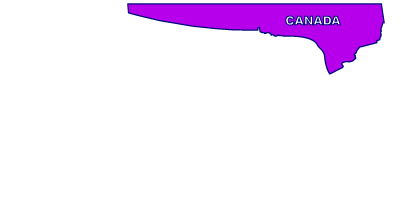Christian Colleges for English Majors
The Christian colleges included here offer your major of interest. You may read through the articles to learn more about your major of interest. You may also select the schools you'd like information from and click "Continue" under the list of schools. The Christian Connector and those schools that you request information from will receive the information you provide on the form so they can respond and meet your information request. Once the form is completed, you'll automatically be entered to win one of four $500 Visa Gift Cards.
Click on the map below to bring schools in the selected region to the top of the list:








Articles on English:
Get Your English Degree at a Christian College
Article by Rachelle Wiggins
“The Divine image has been stamped upon us…God has given us the glorious task of…showing the world what [He] is really like…that [He] is a creative master who loves to bring beauty out of chaos… When a writer assembles letters into sentences, and sentences into paragraphs, and paragraphs into books, she is reflecting the image of God.” ~Stephen Altrogge, writer
Language is powerful! Maybe you have experienced the way a good book can transport you to another time and place, been stirred by a moving speech or sermon, or caught off guard by emotion elicited by a strong screenplay come-to-life. English, as a major, is the study of literature and language arts. It explores the written word in various forms—plays, poems, short stories, scripts and novels—and explores grammar, word usage and writing style. Can you define terms like rhetoric, philology and syntax? This interdisciplinary major delves into these topics and others, such as reading through an interpretive lens and persuasive writing. Have you dreamed of writing “the next great American novel?” Do you enjoy cuddling up and reading for hours on end? From Shakespeare to Steinbeck, Dickens to Dillard, an English major spends vast amounts of time reading, analyzing and writing texts.
If you are a “word person” considering English as a major, you may also consider whether you possess these other important skills. For example, do you communicate in an organized, clear, effective manner? Are you ready to grow in this area and if so, are you able to handle the criticism necessary to improve? Are you a critical thinker, able to analyze and break down complex ideas and think logically about the “big-picture?” English majors must have keen observation skills and organize and express thoughts in a systematic way. Strong time management, organization and creativity are also helpful.
Christain Colleges for English Majors
An English major must complete a wide range of core credits. Once these requirements are met, you will start into courses related to your major including all kinds of literature classes focusing on specific time periods or geographic specifications such as British or American literature, Victorian or Medieval literature, literature written by women, minorities, modern or international writers. You may write for your school newspaper, participate in poetry readings, join an on-campus literary group, drama club or book club. You may take electives focusing on film, publishing or poetry. Other classes you may take include:
- Literary theory and criticism
- Creative writing
- Linguistics
- Public speaking
- Composition
- Journalism
- Translated works
Not all English majors end up crafting sparkling narratives from a fireside easy chair. Some aspiring novelists do arrive at that goal, and others write great screenplays or become stage directors. But this broad-based, versatile major also prepares you for other careers including those in the fields of advertising, publishing, journalism, education, public service and media. Some graduates find employment writing for newspapers, magazines or doing internet writing. Others get ESL (English as a Second Language) certification and teach English in primary, secondary and university settings, and even internationally. You may add an educational tract and pursue a career in teaching English. There will always be a need for strong communicators in specific areas of writing like science and technology, sports, health and fitness, entertainment, politics, business and finance, just to name a few. Other common career outcomes for this major include:
- Freelance writer
- Editorial assistant
- Copy editor
- Grant writer
- Technical writer
- News writer
If reading and discussing excellent literature stirs your soul and you love spinning a good tale through descriptive writing, then perhaps God has wired to get your english dagree at a Christian college!
A future in English
By Jennifer Bailey
A degree in English language is designed to get you reading books, analyzing theories, critiquing prose and verse and taking a more critical look at the signs and words surrounding us every day. The aim is to get students thinking creatively and analytically about the English language in general. And while there’s more to an English degree than reading hefty novels until your eyes go crossed, it would make good sense to say that reading and analyzing written works is likely to be central to your studies and something you must enjoy and have a passion for.
Did you know that English Literature has developed over the last 15 centuries from the Anglo-Saxon period to the present and is the largest body of literature written in a modern language? Wow, right!?
At the undergraduate level, this major includes in-depth and wide-ranging exposure to literature from both British and American contributors. Your extensive reading would include works from the greatest authors but you would also become familiar with the works of lesser-known authors including poets, essayists, playwrights, novelists and historians.
You should expect to start with courses that cover a large scope of literature from different periods in history; for example, you could be reading Shakespeare one week and Virginia Woolf the next. Your reading will require you to study and analyze passages relating texts to their cultural, social, historical and political contexts.
If you choose to major in English, you will stretch your thought and analytical skills. For this reason, lecturers will not spoon-feed you information but instead will expect you to develop your own understanding by reading assigned critical theory and journals along with the key texts. Seminars and group discussions provide a setting in which to test your ideas on your fellow students and gain a better understanding through idea sharing and debate.
Perhaps you are asking yourself: "What can I do with an English degree once I graduate?" English degree graduates can be found in more or less every industry filling a variety of roles – from editor, to academic and legal advisor, to manager.
Although there’s no one industry which takes precedence, English degree graduates are often found where strong communication and written English skills are very important; such as in media and publishing but also in archiving, writing, book selling, information and research, tourism, events management, social work, research/library, acting, youth work, probation work, human resources, teaching, retail management and sales.
Encompassing many smaller industries, the media sector covers everything from film to television, newspapers to news blogs, advertising to PR and more. Depending on your specific area of interest, there’s a niche for just about any graduate whether you want to produce, write, edit, review, schedule, promote, manage or run.
Be aware that careers in media can be very competitive. To give yourself an edge up on the competition, you should consider gaining valuable work experience during your studies. Interning is a good way to get a feel for different options and will be a boost for your long term career goals.
For example, if you want to go into publishing, you will likely need experience in a similar environment, either from an internship or involvement with a student publication such as your university newsletter, magazine or website. Also, consider a media blog and an active social media platform.
A popular way to utilize this degree and to experience other parts of the world is to teach English as a second language in another country for a period of time before taking off into your long term career plans. This will give you great real world experience and a larger world view which is a trait in demand with companies from all fields.